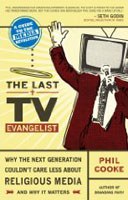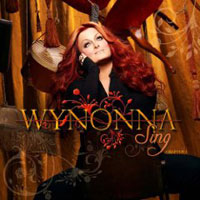If you’re a consumer of media and you’ve never met a Jew in real life, you’re likely to think all Jewish women are superficial busybodies with New York accents or yiddishe mommas trying to match up their daughters with single Jewish doctors. But the MorningStar Commission, named after Herman Wouk’s Marjorie, is trying to promote stronger, more diverse images of Jewish women in the media: from film and TV to stage and publishing. On Sunday, the Commission convened an event in LA titled “Inside the Hollywood Noggin,” which featured several prominent Jewish women in entertainment, and provided audience members with an inside look at how Jewish women are written, cast, and what role they play in production.
The event kicked off with an introductory performance by Vanessa “the Hebrew Mamita” Hidary that asked “What does Jewish look like to you?” Vanessa’s hip-hop spoken word performances have been featured on Russell Simmons’ Def Poetry Jam, and she’s also the director of “Monologues,” an evening of solo performances exploring Jewish identity through anecdotes, stand-up comedy, hip-hop, and spoken word.
The day included breakout sessions with casting directors, producers and writers/showrunners. Jill Soloway, a writer/producer on shows like “Grey’s Anatomy,” “Dirty Sexy Money,” and “Six Feet Under,” and currently the showrunner for “United States of Tara,” noted that the Jewish soul in her characters is what makes the audience empathize. She also spoke of showing “authentic, human moments” and noted that creating characters that were only positive was “anti-good-writing.” Her main concern as showrunner is not about the ego of making the characters and plot go where she wants it to, but to “honor the show, which is in the middle of the room.”
The featured event was an interview with Jenji Kohan, creator of the hit Showtime show “Weeds,” which has been intensifying its use of Jewish characters and themes in the last season. Jewish Journal reporter Danielle Berrin asked probing questions about Kohan’s Jewish influences, and the show’s moral compass. “I lead a conventional, quiet life,” Kohan said. “This is my rebellion. This is my fun.” She also revealed that when she sees sacred cows, she has an urge to tip them. Berrin asked how conscientious she was in portraying Jewish characters, and Kohan answered that she doesn’t concern herself with those kinds of “macro concepts.” “These are complex, complicated characters, warts and all.” (We’ve been watching Andy Botwin for 48 episodes, so we’d have to agree.)
Kohan’s newest show is in development: “Ronna and Beverly” is based on a stage show by two improvisers, about two middle aged Jewish women. Kohan revealed that people kept asking if it was “too Jewish.” “Is the Sopranos ‘too Italian’?” she asked indignantly about executives who get squeamish about the cultural tenor of the show. “Why not allow access to the Jewish experience?”
Aware that the audience included writers and producers of content, Berrin asked what we all could do to diversify the pool of female Jewish characters, and Kohan’s answer was simple: “write authentic Jewish characters and get it out there.”
So basically, I’ve got my work cut out for me.



